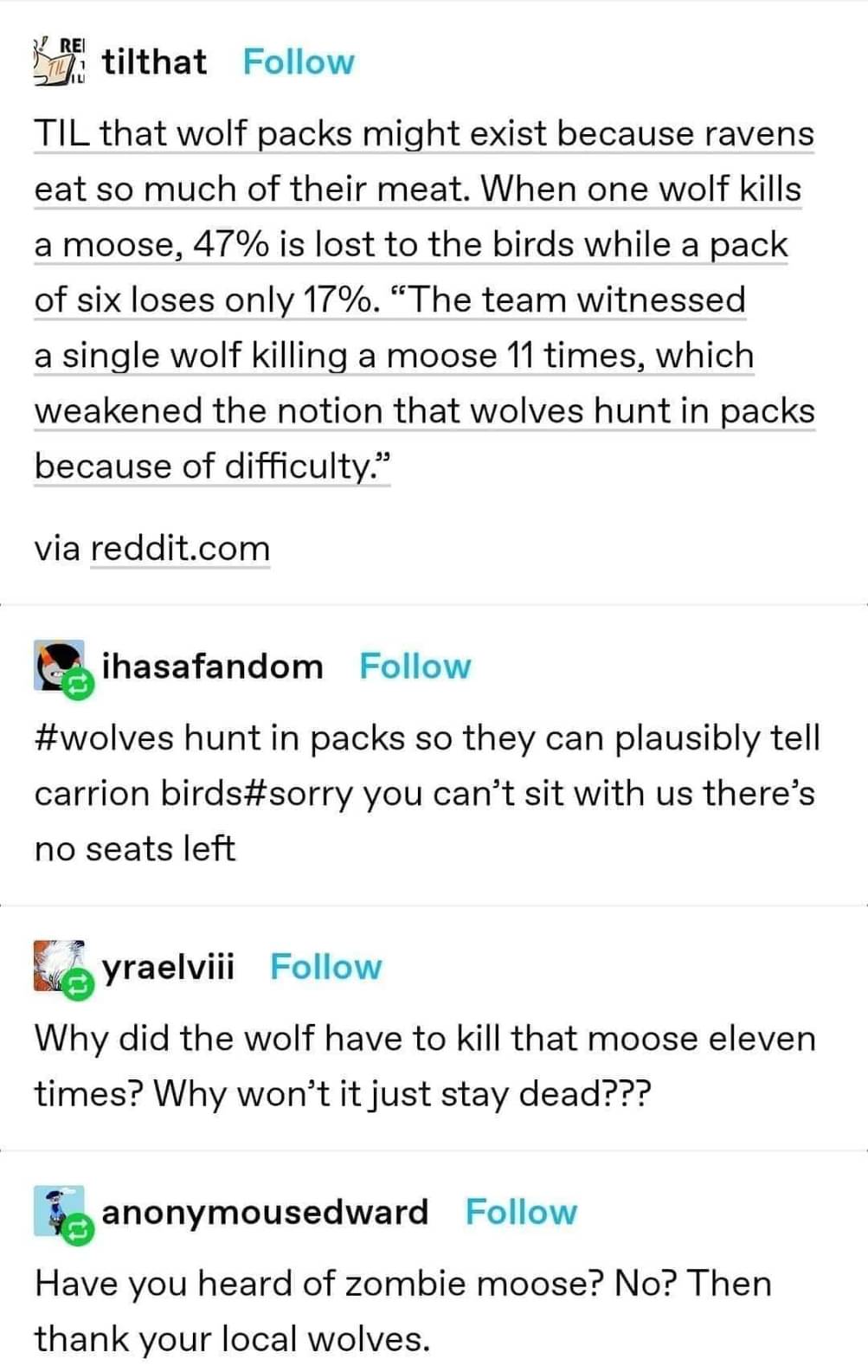this post was submitted on 05 Jun 2024
677 points (98.0% liked)
Science Memes
10464 readers
2394 users here now
Welcome to c/science_memes @ Mander.xyz!
A place for majestic STEMLORD peacocking, as well as memes about the realities of working in a lab.

Rules
- Don't throw mud. Behave like an intellectual and remember the human.
- Keep it rooted (on topic).
- No spam.
- Infographics welcome, get schooled.
Research Committee
Other Mander Communities
Science and Research
Biology and Life Sciences
- [email protected]
- [email protected]
- [email protected]
- [email protected]
- [email protected]
- [email protected]
- [email protected]
- [email protected]
- [email protected]
- [email protected]
- [email protected]
- [email protected]
- [email protected]
- [email protected]
- [email protected]
- [email protected]
- [email protected]
- [email protected]
- [email protected]
- [email protected]
- [email protected]
- [email protected]
- [email protected]
- [email protected]
- !reptiles and [email protected]
Physical Sciences
- [email protected]
- [email protected]
- [email protected]
- [email protected]
- [email protected]
- [email protected]
- [email protected]
- [email protected]
- [email protected]
Humanities and Social Sciences
Practical and Applied Sciences
- !exercise-and [email protected]
- [email protected]
- !self [email protected]
- [email protected]
- [email protected]
- [email protected]
Memes
Miscellaneous
founded 2 years ago
MODERATORS
you are viewing a single comment's thread
view the rest of the comments
view the rest of the comments

Actuallyyy...
Goose comes from Old English, where they pluralized [go:s] (think "goes" with a soft S) by adding [iz] (like "ease").
When saying [go:siz], it was kinda hard for the mouth to switch the vowels from the [o] to the [i] quickly, so to save themselves the trouble, they'd change the first vowel to make it a little more similar to the second, so [go:siz] became [ge:siz].
Then, that was too long, so they dropped the [z]. [ge:si] (think "guessy" but the "e" lasts a bit longer than usual).
Then, that was too long, so they dropped the [i]. [ge:s] ("guess" with that same drawn out "e").
📯It's the Great Vowel Shift!📯 Now, [go:s] and [ge:s] become [gu:s] and [gi:s]. Almost there!
The vowels become a tad short over time, and now, you have [gus] and [gis] which are written "goose" and "geese".
But "MOOSE"? That's Algonquin. It has nothing to do with all that noise. "But they sound the same and are written the same?!" So? Haven't you heard? English orthography is a dumpster fire. Nobody knows what they're doing. Not even the words.
What's this Great Shift of Vowels?
Big change in how English speakers pronounced long vowel sounds
The reason why English sounds so different from its relatives like Dutch and German.
Two words on completely different paths, probably headed in completely different directions, but then they smashed together and because they sound similar, one could end up inheriting the evolution of the other.
Yup. That phenomenon is called "analogical change". The opposite happens too though! For example, "person" and "parson".